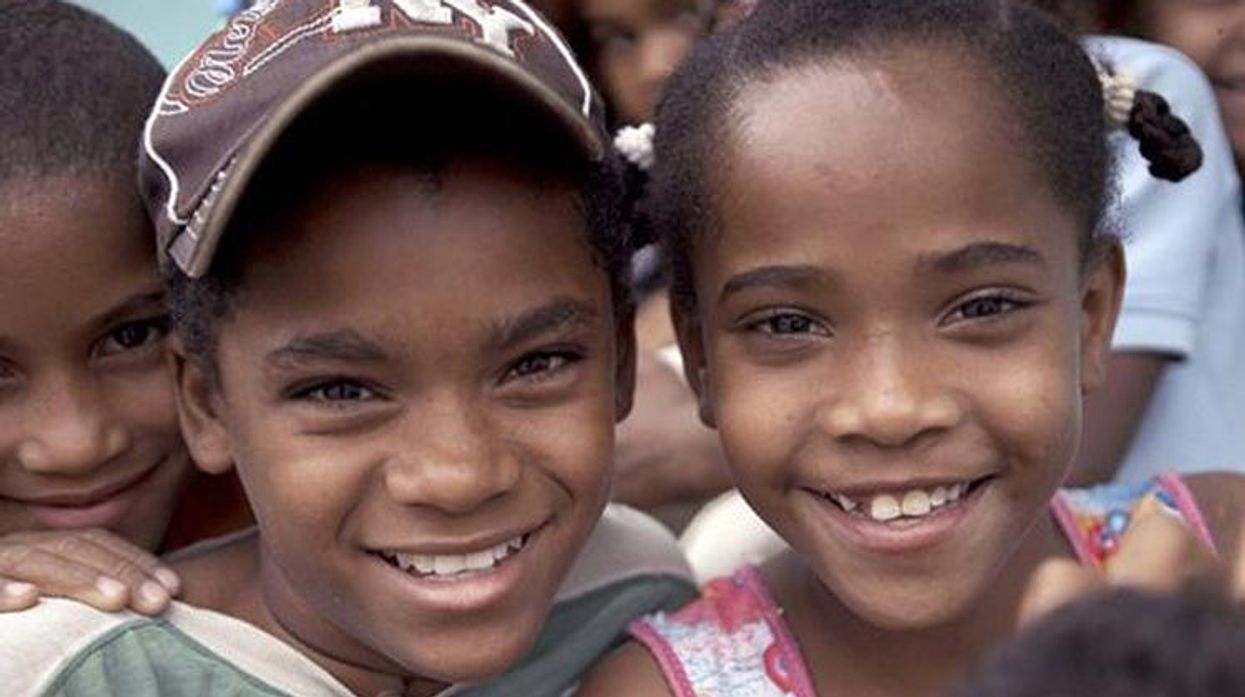Carla, 7, has a girl's name, and lived her first 11 years on earth as a girl, but is now a boy, with a now very obvious penis that did not appear until undergoing puberty at 12. Carla calls herself he, and is about to change her name to Carlos.
He is one of the Guevedoces reported by the BBC to live in a small town in the Dominican Republic, a community where the secret of their unusual gender transitions led to a medical breakthrough that has helped millions of men worldwide.
Guevedoces effectively translates as "penis at 12," and these children have a far more difficult puberty than most: after being brought up as a girl because he had no visible testes or penis and what appeared to be a vagina, his penis grew and testicles descended at the onset of puberty.
Carla's mother has seen the change coming in her daughter for quite a while.
"When she turned five I noticed that whenever she saw one of her male friends she wanted to fight with him. Her muscles and chest began growing. You could see she was going to be a boy. I love her however she is. Girl or boy, it makes no difference."
Not everyone in their community is so accepting.
Johnny is another Guevedoces encountered by the BBC television team, which was there to report on how we humans develop in the womb and how changes during that crucial time impact us later in life.
Johnny, once known as Felicita, told the BBC he remembers wearing a little red dress to school, and that he was never happy doing the things a girl does in his town.
"I never liked to dress as a girl and when they bought me toys for girls I never bothered playing with them - when I saw a group of boys I would stop to play ball with them."
Despite this being an issue known to the locals, bullies still taunted Johnny, and as some boys do, he got into fights.
"They used to say I was a devil, nasty things, bad words and I had no choice but to fight them because they were crossing the line."
Johnny has adopted another heterosexual male habit since developing male genitalia: dating girls. "I'd like to get married and have children, a partner who will stand by me through good and bad," said Johnny.
A scientist who studied the Guevedoces say almost all showed strong heterosexual preferences. Dr Julianne Imperato-McGinley of Cornell Medical College in New York used her findings to write a paper on the nature versus nurture argument, stating that hormones in the womb have a more significant impact than how a child is raised, when it comes to your sexual orientation..
Imperato-McGinley was one of the first people to study this unusual condition, according to the BBC.
She came upon this remote part of the island In the 1970s, after hearing rumors of a place where girls didn't get their period and grow into womanhood, but instead turned into boys.
Imperato-McGinley took biopsies of the Guevedoces's testicles to help finally solve the mystery of what was going on.
According to her research, the reason they don't have male genitalia when they are born is because they lack an enzyme called 5-alpha-reductase, which normally converts testosterone into dihydro-testosterone, sometimes referred to as DHT.
That deficiency appears to be genetic condition that Imperato-McGinley found was quite common in this remote part of the Dominican Republic, but extremely rare everywhere else.
These boys have an XY chromosome but still appear female when they are born. When their body triggers a second surge of testosterone at puberty, they start to sprout muscles, testes and a penis.
Imperato-McGinley's research found most Guevedoces function as males in every way and live out their lives as men, although she also found some who still identified as female and underwent surgery to achieve a gender transition.
Perhaps the most fascinating thing Imperato-McGinley discovered about the Guevedoces was that they all tended to have small prostates, a finding that would have a huge impact on men around the world.
Her observation of this phenomenon in 1974 caught the eye of Roy Vagelos, head of research at Merck. His research ed to the development of what is now the best-selling drug, finasteride, which blocks the action of 5-alpha-reductase, mimicking the lack of dihydro-testosterone seen in the Guevedoces.
A study published in the New England Journal of Medicine in 2013 revealed that men age 55 and older who regularly used finasteride, which is sold under the brand name Proscar, for up to 7 years decreased their risk of low-grade prostate cancer. All thanks to the Guevedoces.




































































Charlie Kirk DID say stoning gay people was the 'perfect law' — and these other heinous quotes